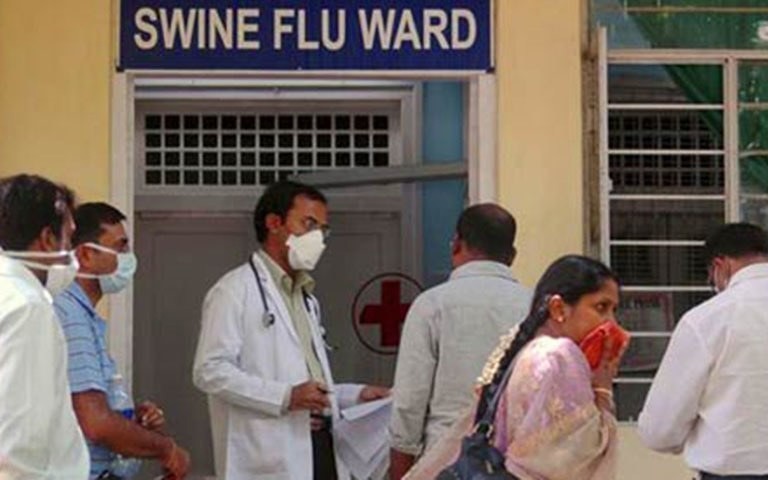
Increase in Swine flu incidents, including 23 deaths, in South Punjab calls for awareness among the masses

Multan and its neighbouring districts of South Punjab are under the grip of swine flu. There are reports that some people have been affected by it in Lahore and Karachi as well but no casualties have been reported from there. According to a statement issued by the spokesman of Nishtar Hospital, Multan, Dr Attaur Rehman on Jan 17, the death toll in Multan district has risen to 23 so far and the number of people affected by swine flu virus (H1N1) during last 24 hours is 184.
A major point of concern is that people are unaware of the symptoms and find it hard to differentiate swine flu from common flu. They keep on taking regular anti-flu medicines and approach the doctors only when their condition has deteriorated. This trend has been noticed in 11 districts of South Punjab that are declared high risk districts by the provincial health authorities.
It is said that if treatment is not started well in time, the risk of death increases especially among children and old people who have less immunity than adults. The disease is highly contagious and can spread when one comes in contact with infected people or things touched by them.
Research in swine flu disease reveals that children under the age of six and people over 65 are highly vulnerable to the disease. In general, the patients already suffering from immunity related issues are also vulnerable. Furthermore, pregnant women, heart patients and chain smokers are also at a high risk.
TNS talked to Director General, Health Services Punjab, Dr Akhtar Rasheed regarding the prevalence of swine flu and how to tackle it. He says "first of all people and doctors and paramedics at the local level must have awareness about the disease and its apparent symptoms. Only then they can raise timely alarm and make patient seek required treatment".
Rasheed explains the cycle of swine flu is around three to seven days long. If treated timely and with strong immunity, it ends after that. On the other hand, he says, "it enters danger zone if it lasts for more than 10 days. In that case, fluid samples from nose, mouth and throat of the patients are taken and tested in laboratories of the hospitals to confirm H1N1. After confirmation, anti-virus drugs and antibiotics are given to the patients while they are kept and treated in isolation".
Dr Ashraf Nizami, President Pakistan Medical Association (PMA), shares that swine flu has been named so as it is said to transfer to people handling pigs but the fact is that it transfers from human beings to human beings. "It transfers to a person who even shakes hand with an infected patient. Coughing, sneezing, fever, abdominal pain, chest pain, pneumonia, sore throat are major symptoms of swine flu. If these symptoms remain for more than five days, it means the patient is suffering from swine flu. He must be admitted at the isolation ward in any hospitals. In some cases vomiting and diarrhea have also been observed," says Nizami.
On how the disease travelled to Pakistan, DG Health Punjab says "there is a high probability that it has come from the USA through some infected travellers coming here. Swine flu incidence is quite high in the US and especially in five states of the USA including California. The presence of the disease has been observed in Karachi, Lahore, Faisalabad, Multan, DG Khan and Muzaffargarh over the years".
It was also revealed that Young Doctors Association (YDA) top leadership has written letters for the vaccination of doctors and hospital nurses against influenza H1N1. Dr. Salaman Haseeb Chaudhary, spokesperson YDA Punjab says, "So far only 1800 out of 35,000 doctors have been vaccinated because of unavailability of vaccines in Punjab hospitals. Isolation wards for the infected patients are not sufficient," he says while talking to TNS.
Doctors are scared as seven of them have also been infected with the disease. If this fear does not go away, they will not be able to treat the infected patients properly.
The disease is being controlled by anti-virus drugs, vaccine and personal protective equipment in the hospitals. The Health Department has launched awareness campaign against the disease. The DG Health agrees that doctors have panicked. "In Africa, doctors were seen throwing medicines towards patients through windows. We had provided vaccination in September in primary and tertiary health departments. We purchased all the available vaccine from markets and gave it to teaching hospitals."
"Public can purchase the vaccine from private medical stores and get themselves vaccinated for their safety. The vaccine is not manufactured here. It is imported but not in enough quantity to give it to the whole population," he concludes.